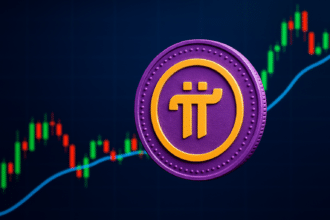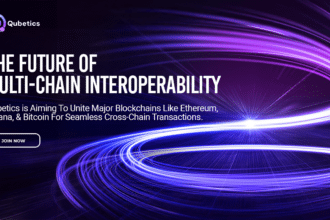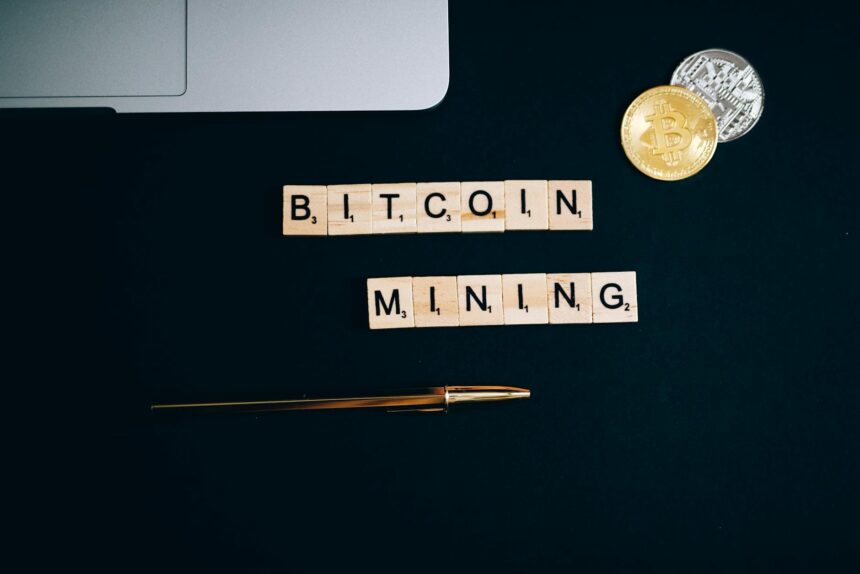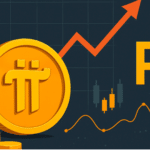In a bold and unprecedented move, Deutsche Telekom has ventured into the intriguing world of Bitcoin Mining, marking a significant milestone for Europe’s largest telecom provider. This how-to guide peels back the layers on Deutsche Telekom’s strategic decision, offering insights into the fundamentals of Cryptocurrency Mining and the intricate workings of Blockchain Technology. As we delve deeper, we will explore Deutsche Telekom’s innovative approach to establishing Mining Pools, the technical requirements for such operations, and the security measures essential for safeguarding mining endeavors. Ultimately, this guide aims to shed light on the far-reaching implications of Deutsche Telekom’s foray into this disruptive technology, setting the stage for an in-depth understanding of the future landscape shaped by their pioneering initiative.
Understanding Deutsche Telekom’s Decision to Enter Bitcoin Mining
Deutsche Telekom, Europe’s largest telecom provider, has made a significant move by venturing into Cryptocurrency Mining. This bold step stems from a strategic decision aimed at harnessing the growing potential of Blockchain Technology and diversifying the company’s revenue streams. To comprehend their motivation, consider the following key factors:
- Market Trends:
- The surge in cryptocurrency valuation has attracted numerous industries worldwide. For Deutsche Telekom, participating in Cryptocurrency Mining presents an opportunity to capitalize on this lucrative market.
- The rapid adoption of blockchain solutions in various sectors underscores a trend Deutsche Telekom aims to be at the forefront of.
- Technological Innovation:
- Blockchain Technology offers unparalleled security, transparency, and efficiency. Deutsche Telekom is leveraging its technological capabilities to not only mine cryptocurrencies but also to explore further blockchain applications.
- Revenue Diversification:
- Engaging in Cryptocurrency Mining serves as a potential revenue stream. By establishing themselves in this arena, Deutsche Telekom can mitigate risks associated with the telecom industry’s traditional business models.
- Sustainability Goals:
- Deutsche Telekom is committed to sustainable practices. Utilizing green energy for mining operations aligns with their environmental objectives while promoting a sustainable approach to Cryptocurrency Mining.
To better visualize the motivations, refer to the table below:
| Motivations | Description |
|---|---|
| Market Trends | Rising cryptocurrency valuations and blockchain adoption |
| Technological Innovation | Exploit Deutsche Telekom’s tech capabilities and explore blockchain applications |
| Revenue Diversification | Provides a new revenue stream distinct from traditional telecom operations |
| Sustainability Goals | Commitment to environmentally friendly mining practices using green energy |
In summary, Deutsche Telekom’s strategic decision to enter the world of Cryptocurrency Mining reflects its drive to stay ahead of technological advancements, diversify its revenue, and adhere to sustainability commitments. This move not only leverages their existing infrastructural strengths but also positions them as a pioneer in the integration of Blockchain Technology within Europe’s telecom sector.
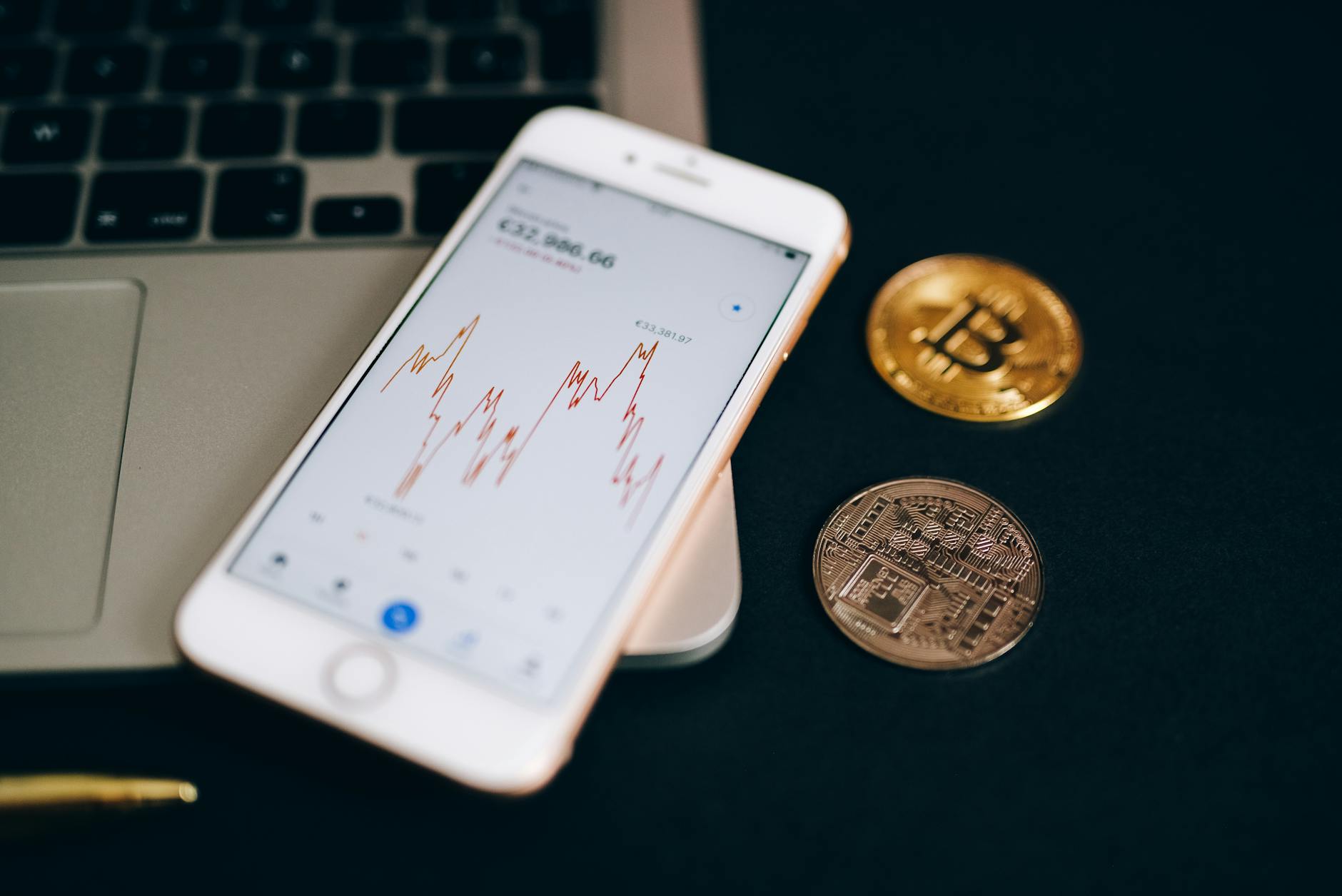
Photo by Leeloo The First
The Basics of Cryptocurrency Mining
To understand why Deutsche Telekom has ventured into this domain, it is crucial to first grasp the fundamentals of cryptocurrency mining. Essentially, the process involves validating transactions in a cryptocurrency network and adding them to a blockchain ledger. This activity not only secures the network but also introduces new cryptocurrencies into circulation. Below are the key points you should know:
How it Works:
- Transaction Validation:
- Nodes operate on a blockchain network to verify transactions.
- Once transactions are validated, they are grouped into a block.
- Proof-of-Work:
- Miners use computational power to solve complex mathematical problems.
- The first miner to solve the problem gets to add the block to the blockchain and earns a reward.
- Rewards:
- Miners receive incentives in the form of new cryptocurrency.
- Transaction fees from the network also reward the miners.
Important Concepts:
- Blockchain Technology: The underlying technology that maintains a decentralized and immutable ledger of transactions.
- Mining Pool: Miners can join pools where they combine their computational resources to increase the chances of solving block problems and share the rewards.
Here is a visual representation to enhance understanding:
| Concept | Description |
|---|---|
| Nodes | Computers that validate and relay transactions |
| Miners | Participants who perform the computational work to solve mathematical puzzles |
| Blockchain Ledger | Decentralized ledger where validated transactions are recorded |
| Rewards | Newly minted cryptocurrency and transaction fees |
| Mining Pool | Collaborative groups of miners sharing their computational resources |
Advantages:
- Decentralization: Keeps the network secure from centralized control.
- Security: Enhanced transaction security through cryptographic methods.
Challenges:
- Energy Consumption: High power consumption, making it environmentally taxing.
- Technical Knowledge: Requires in-depth understanding and technical expertise.
By grasping these basics, you will better understand Deutsche Telekom’s strategy and the complexities involved in embarking on cryptocurrency mining ventures.
An Overview of Blockchain Technology
Understanding how Blockchain Technology operates is crucial to comprehending Deutsche Telekom’s recent venture into cryptocurrency mining. Blockchain technology underpins all major cryptocurrencies and plays a critical role in ensuring the security and authenticity of digital transactions. Here’s a detailed look at what makes blockchain essential:
What is Blockchain Technology?
Blockchain is a decentralized digital ledger that records transactions across multiple computers in such a way that the registered transactions cannot be altered retroactively. This characteristic ensures high security and transparency. It eliminates the need for a central authority like a bank, making it ideal for Cryptocurrency Mining.
Key Components of Blockchain:
- Blocks: Each block contains a list of transactions. Once a block is completed, a new one is generated, creating a chain of blocks.
- Nodes: Nodes are individual computers within the blockchain network, each maintaining a copy of the entire blockchain.
- Consensus Mechanisms: These protocols like Proof-of-Work (PoW) or Proof-of-Stake (PoS) validate new transactions and add them to the blockchain.
“Blockchain technology’s decentralized nature ensures that no single entity has control, thereby fostering transparency and trust,” says an expert in the field.
How Blockchain Facilitates Cryptocurrency Mining
In Cryptocurrency Mining, miners use computational power to solve complex mathematical problems, adding new blocks to the blockchain and earning rewards. The process is integral to maintaining the blockchain’s integrity and transparency.
Benefits of Blockchain in Mining
- Security: Its decentralized nature makes it immensely difficult for any malicious entity to alter transaction records.
- Transparency: Every transaction is publicly verified, ensuring authenticity and eliminating the potential for fraud.
- Immutability: Once a transaction is recorded in a block and added to the chain, it cannot be changed, guaranteeing the reliability of data.
Deutsche Telekom’s Role
This robust technological foundation provided by blockchain has enabled Deutsche Telekom to confidently venture into Mining Pool operations, ensuring secure and efficient transactions for all participants. Their adoption of advanced blockchain protocols not only amplifies security but also provides a foolproof verification mechanism essential for high-stakes crypto transactions.
In summary, understanding Blockchain Technology reveals why Deutsche Telekom’s entry into cryptocurrency mining is both timely and forward-thinking, leveraging the benefits of security, transparency, and decentralization offered by blockchain.
Deutsche Telekom’s Approach to Setting Up Mining Pools
As the largest telecom provider in Europe, Deutsche Telekom’s venture into Cryptocurrency Mining necessitates robust strategies, especially concerning the establishment of Mining Pools. This guide will unfold their methodologies and highlight key practices facilitating a seamless introduction into the sector.
Key Steps Undertaken:
- Research and Development (R&D):
- Extensive R&D to understand blockchain dynamics.
- Collaboration with industry experts and technology partners.
- Infrastructure Setup:
- Data Centers: Establishing state-of-the-art data centers optimized for the immense computational demands of mining.
- Power Supply: Securing renewable energy sources to ensure sustainable and cost-effective operations.
- Technical Specifications:
- Hardware: Investment in high-performance ASIC (Application-Specific Integrated Circuit) miners.
- Software: Deploying advanced mining software algorithms and leveraging in-house development to enhance efficiency.
- Pooling Strategy:
- Decentralized Approach: Implementing a decentralized pool structure to improve security and reliability.
- Community Involvement: Encouraging community participation by offering competitive rewards and transparent operations.
Benefits of Their Strategy:
| Benefit | Description |
|---|---|
| Enhanced Security | Decentralized structure mitigates risks. |
| Operational Efficiency | High-performance hardware and renewable energy reduce costs. |
| Community Engagement | Transparent and rewarding systems attract more miners. |
Long-term Vision:
Deutsche Telekom aims to synergize their expertise in telecommunications with Blockchain Technology, driving innovation and demonstrating their commitment to digital transformation. The strategic setup of Mining Pools not only secures significant computing power but also propels collective growth and robustness in the crypto ecosystem.
Summary:
By focusing on rigorous R&D, advanced infrastructure, strategic technical choices, and community engagement, Deutsche Telekom sets a new benchmark in the realm of Cryptocurrency Mining. Their methodical approach ensures a resilient and forward-thinking mining operation positioned to yield sustainable success.
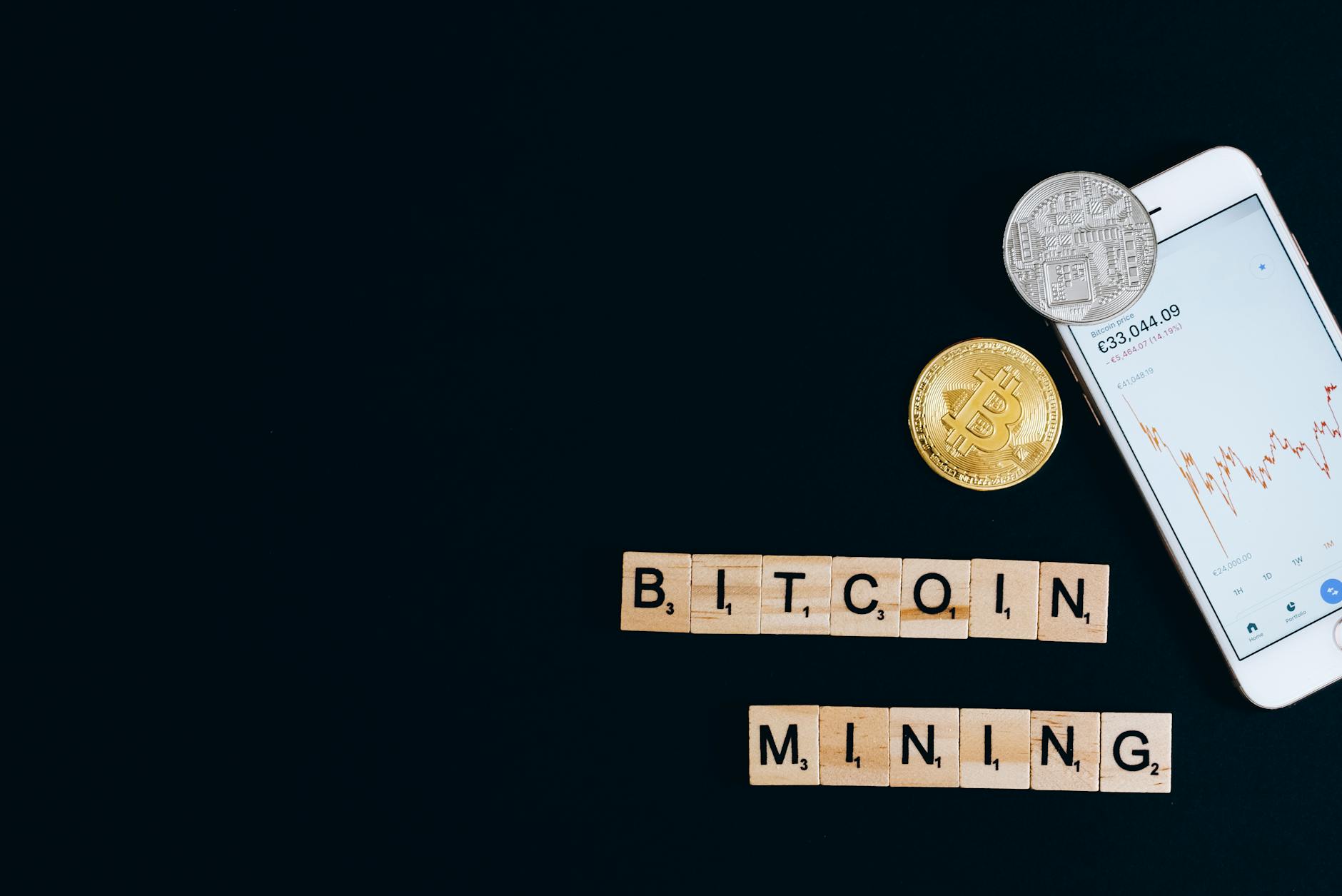
Photo by Leeloo The First
Technical Requirements and Infrastructure for Mining Operations
Understanding the technical requirements and infrastructure for Cryptocurrency Mining is crucial for any large-scale operation, especially for a giant like Deutsche Telekom. The complexity and energy consumption levels necessitate a meticulous setup. Below, we break down the essential components and considerations for establishing a robust mining operation.
Key Technical Requirements
- Hardware:
- Hash Rate: High-performance mining rigs with powerful GPUs or ASICs capable of handling the necessary computational power.
- Cooling Systems: Efficient cooling solutions to manage the heat generated by the mining equipment.
- Power Supply: Stable and uninterrupted power sources, often requiring dedicated circuits and backup generators.
- Software:
- Mining Software: Reliable and updated mining software to optimize performance and secure transactions.
- Monitoring Systems: Real-time monitoring tools to track the health and performance of hardware components.
- Network Infrastructure:
- Internet Connection: High-speed and low-latency internet connections to ensure smooth communication between miners and the Mining Pool.
- Redundancies: Backup internet connections and failover mechanisms to minimize downtime.
Infrastructure Components
| Component | Description |
|---|---|
| Data Centers | Facilities specifically designed to house and operate mining hardware securely. |
| Energy Solutions | Sustainable and cost-effective power sources such as renewable energy options. |
| Security Systems | Robust physical and cyber security measures to protect against theft and attacks. |
| Maintenance Staff | Skilled personnel tasked with maintaining and troubleshooting equipment. |
Implementation Steps
- Assess Power Needs:
- Conduct a power audit to determine the facility’s electricity requirements.
- Explore renewable energy options to reduce operational costs and environmental impact.
- Design the Layout:
- Plan the arrangement of mining rigs to optimize cooling and power distribution.
- Implement efficient cabling and wiring solutions to ensure safety and reliability.
- Set up Security Measures:
- Install advanced security systems, including surveillance cameras and access control.
- Implement cybersecurity protocols to guard against hacking and data breaches.
- Maintain Operational Efficiency:
- Regularly update software and firmware to prevent vulnerabilities.
- Perform routine hardware maintenance to extend the lifespan of mining equipment.
By addressing these technical and infrastructural elements, Deutsche Telekom can position itself for successful and sustainable Cryptocurrency Mining operations. Continual assessment and optimization will be key to adapting to the rapidly evolving mining landscape.
Security Measures and Challenges in Bitcoin Mining with Deutsche Telekom
When exploring the realm of Cryptocurrency Mining, security and challenges stand as significant aspects, especially for an entity of Deutsche Telekom’s stature. Transitioning into Blockchain Technology necessitates robust security protocols and a keen understanding of potential hurdles. Below, we delve into the measures Deutsche Telekom is implementing and the challenges they might face in the mining landscape.
Security Measures
1. Data Encryption:
Deutsche Telekom employs advanced encryption techniques to safeguard data. This ensures that transactions and sensitive information remain secure and inaccessible to unauthorized entities.
2. Multi-Factor Authentication (MFA):
Implementing MFA adds an extra layer of security by requiring multiple forms of verification before granting access to mining operations, thereby reducing the risk of unauthorized access.
3. Regular Audits:
Conducting periodic security audits helps in identifying vulnerabilities and rectifying them proactively. These audits scrutinize every aspect of the mining infrastructure, ensuring compliance and security robustness.
4. Secure Mining Pools:
Setting up Mining Pool structures under stringent security protocols helps in pooling resources efficiently while maintaining high standards of safety. This includes secure servers, encrypted communication channels, and frequent monitoring.
5. Incident Response Plan:
Having an incident response plan in place ensures that any security breaches or anomalies can be swiftly addressed. This includes predefined protocols for shutting down compromised systems and isolating threats.
Challenges
1. Energy Consumption:
Cryptocurrency mining is energy-intensive, posing a challenge in terms of sustainability and operating costs. Deutsche Telekom aims to tackle this through innovative energy solutions.
2. Regulatory Compliance:
Staying abreast of regulatory changes across different regions requires continuous monitoring and adaptation. Deutsche Telekom’s legal team ensures that mining activities comply with local and international laws.
3. Technological Evolution:
The rapid evolution of Blockchain Technology demands that Deutsche Telekom continually upgrades its hardware and software to stay competitive. This implies significant investment in research and development.
4. Cyber Threats:
Mining operations are attractive targets for cybercriminals. Continuous vigilance, along with advanced cybersecurity measures, is vital to fend off threats like DDoS attacks and hacking attempts.
5. Network Stability:
Maintaining a stable and robust network infrastructure is essential. Any latency or downtimes could significantly impact mining efficiency and profitability.
The Balancing Act
“Security is not just an IT necessity; it’s a business imperative. With Deutsche Telekom’s venture into cryptocurrency mining, our top priority remains to ensure a secure and resilient mining framework that can withstand both current and emerging threats.”
By balancing these security measures with the inherent challenges, Deutsche Telekom aims to set a benchmark in the industry. Their entry into the mining sphere reflects a strategic blend of technological prowess and security diligence.
Future Implications of Deutsche Telekom’s Move into Cryptocurrency Mining
Deutsche Telekom’s foray into Cryptocurrency Mining marks a significant shift in the telecommunications industry. This move carries several potential future implications.
Economic Impact:
- Growth Opportunities: As one of Europe’s largest telecom providers, Deutsche Telekom’s involvement can potentially lead to economic growth within the region. Investment in mining operations may create new job opportunities and partnerships with tech companies specializing in Blockchain Technology.
- Market Influence: Deutsche Telekom’s entry into the cryptocurrency space could influence market trends. Their established reputation may attract other major corporations to consider similar ventures.
Technological Advancements:
- Enhanced Infrastructure: The technical requirements and infrastructure enhancements necessary for Mining Pool operations can drive innovation. Germany and Europe could see improvements in digital infrastructure, including faster internet speeds and more robust data centers.
- Cybersecurity Enhancement: The stringent security measures required for mining might lead to advancements in cybersecurity protocols, which will not only benefit the cryptocurrency sector but also the broader telecom industry.
Environmental Considerations:
- Sustainable Practices: European regulations emphasize sustainable practices. Deutsche Telekom’s involvement in cryptocurrency mining could push the industry towards more environmentally friendly and energy-efficient mining techniques.
- Use of Renewable Energy: There is potential for the integration of renewable energy sources into mining operations, leading to greener mining practices.
Regulatory Influence:
- Policy Development: With such a significant player in the market, there could be greater advocacy and development of clearer regulatory frameworks. This can provide greater legitimacy and stability to the cryptocurrency sector.
- Consumer Trust: Enhanced regulatory oversight may boost consumer trust and encourage broader adoption of cryptocurrencies.
| Implications | Potential Effects |
|---|---|
| Economic | Job creation, market trends, investments |
| Technological | Infrastructure improvements, cybersecurity |
| Environmental | Sustainable mining, renewable energy |
| Regulatory | Clearer policies, increased consumer trust |
Deutsche Telekom’s move into cryptocurrency mining is likely to have far-reaching implications, spanning from economic benefits to technological advancements and regulatory changes. These developments could set a precedent for other telecom giants and shape the future of the cryptocurrency landscape.
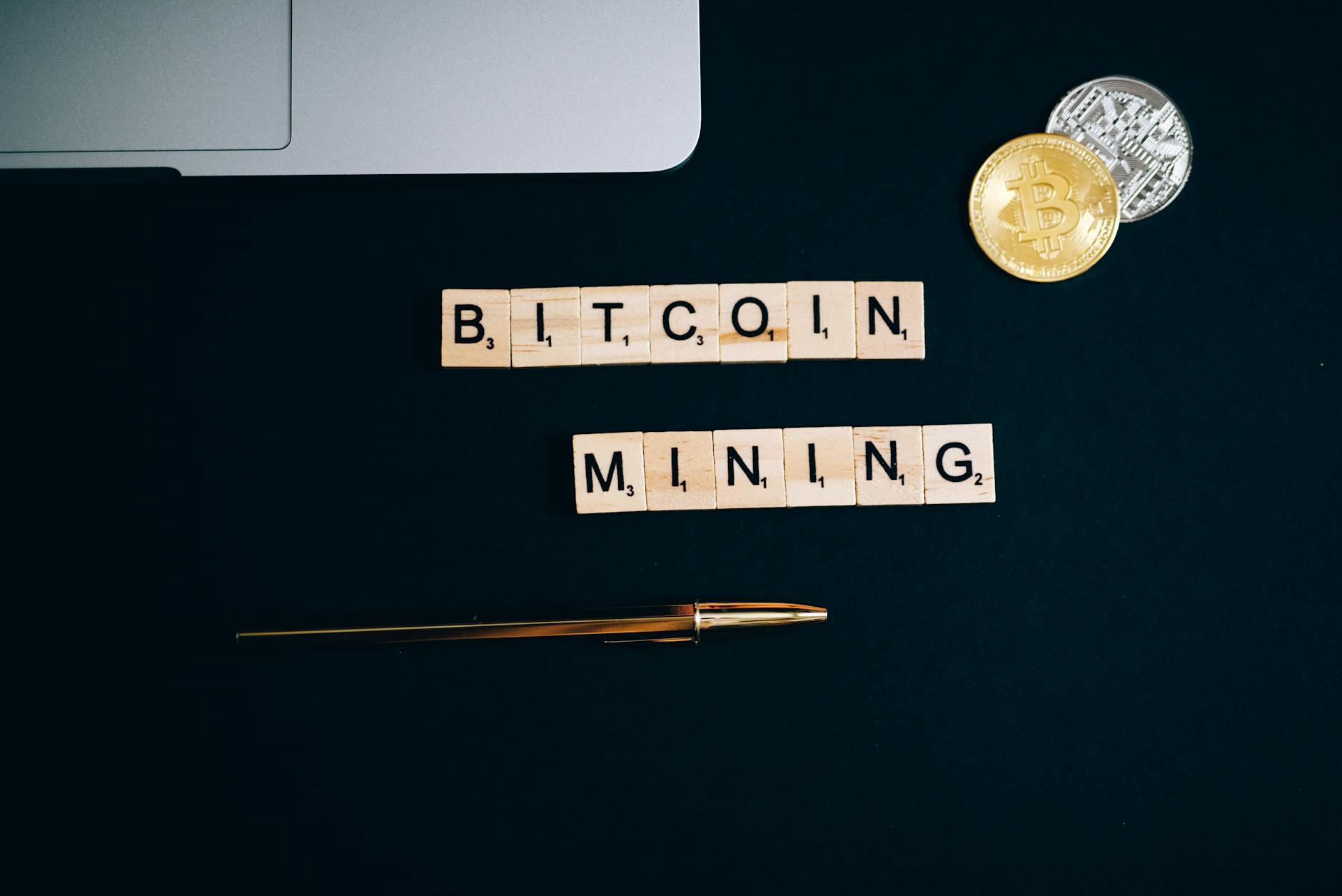
Photo by Leeloo The First
Frequently Asked Questions
What Has Deutsche Telekom Announced Regarding Bitcoin Mining?
Deutsche Telekom has announced its entry into the Bitcoin mining industry, marking a significant move by Europe’s largest telecom provider. This decision underscores the company’s commitment to exploring innovative technologies and diversifying its business operations beyond traditional telecommunications services.
Why is Deutsche Telekom Interested in Bitcoin Mining?
Deutsche Telekom is interested in Bitcoin mining as part of its broader strategy to explore emerging technologies and sustainable energy solutions. By venturing into Bitcoin mining, the company aims to leverage its existing infrastructure and technical expertise to capitalize on the growing blockchain and cryptocurrency market. Additionally, this move aligns with the global trend of increasing corporate interest in digital assets and decentralized finance.
How Will Deutsche Telekom’s Entry Influence the Bitcoin Mining Industry?
Deutsche Telekom’s entry into Bitcoin mining is likely to have a significant impact on the industry. As a major player with substantial resources and infrastructure, the company can bring enhanced technical capabilities and operational efficiencies to the mining process. This may increase competition, drive innovation, and potentially lead to more sustainable and scalable mining solutions within the industry.
What Are the Potential Benefits and Risks of Deutsche Telekom’s Venture into Bitcoin Mining?
The potential benefits of Deutsche Telekom’s venture into Bitcoin mining include diversification of revenue streams, leveraging existing infrastructure for new technological applications, and positioning the company at the forefront of innovation in digital finance. However, there are also risks, such as the volatility of Bitcoin prices, regulatory uncertainties, and the environmental impact associated with high energy consumption in mining operations. The company will need to address these challenges to ensure the long-term success of this initiative.
